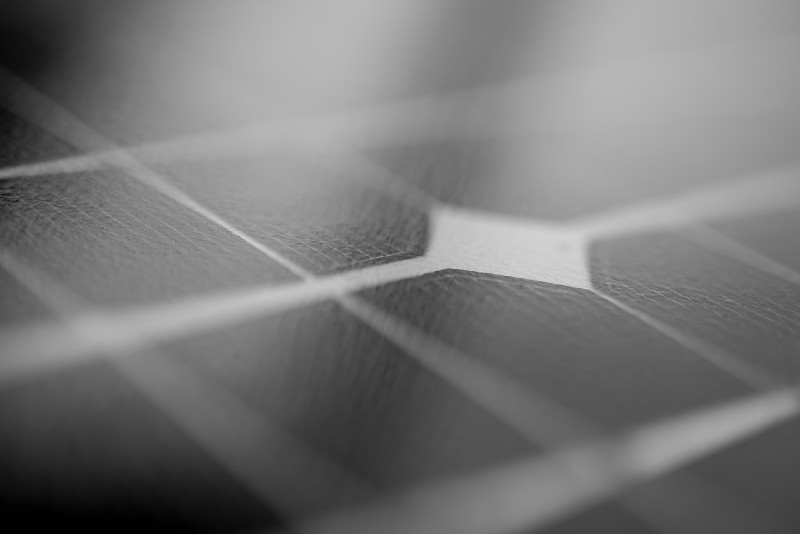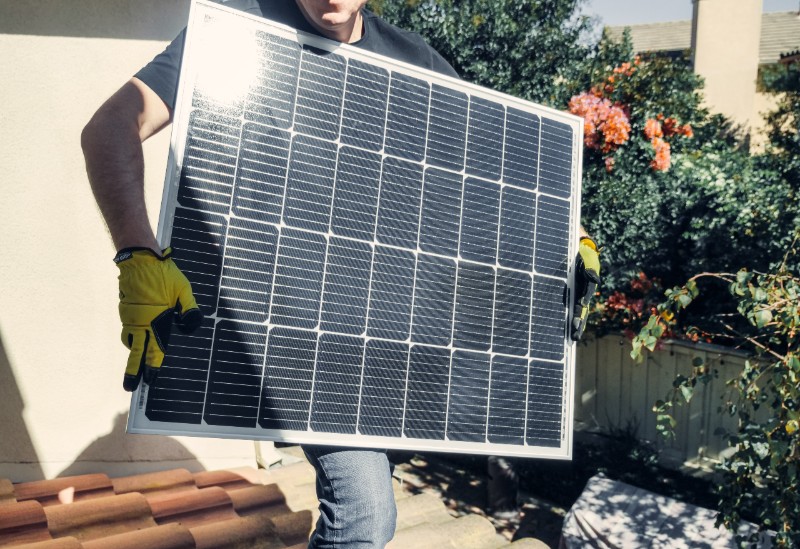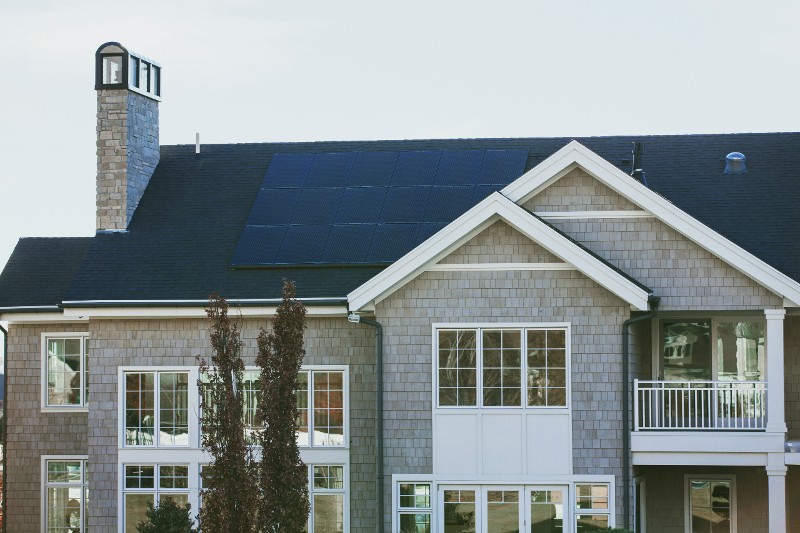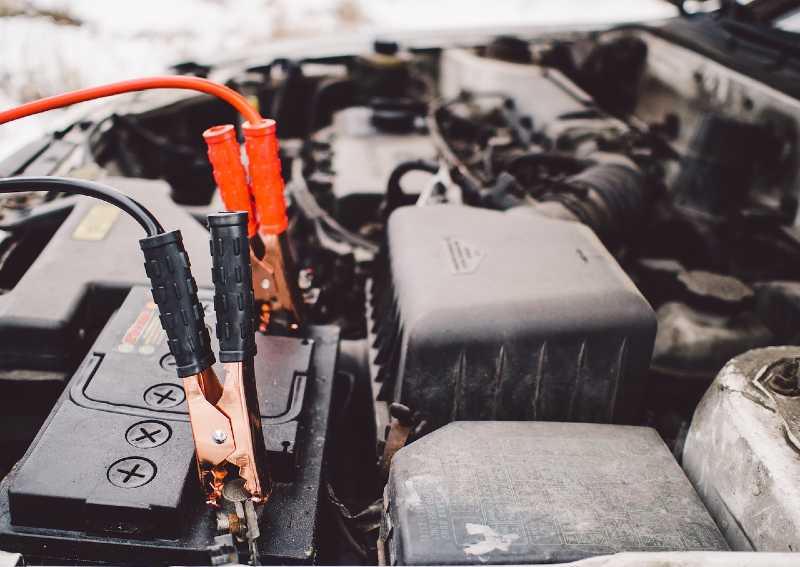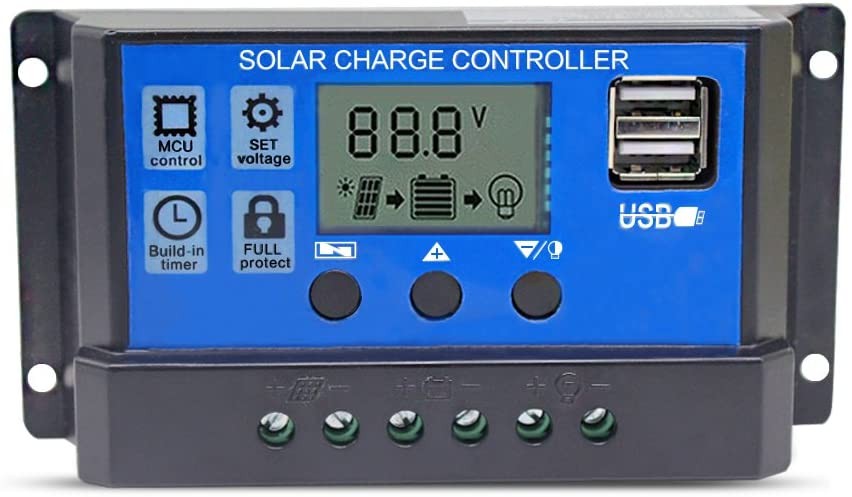Many people are wondering if solar panels can overcharge a battery.
The answer to that question is a resounding YES!
With enough time, any solar panel -no matter what size it’s- can eventually provide your battery with more charge than it can handle, thus, damaging it.
In this article, we will go through all you need to know about charging a battery with solar panels including what is battery overcharging, what happens to your battery if it’s overcharged, and how to prevent your battery from overcharging?
So without further ado, let’s jump right into it.
What Is Meant By Battery Overcharging?
Battery overcharging can be defined as the act of charging a battery with a current that is greater than its charging limit.
In most cases, the limit can be expressed through a voltage value.
For example: when charging a 12-Volt battery with a solar panel that provides an output of 18 Volts or higher, you will have to place some kind of load in between your batteries and the panels in order to prevent overcharging AKA a charge controller.
What Happens To Your Battery If You Overcharge It?
Overcharging a battery can have severe consequences on its lifespan and performance.
For one thing, you will shorten the life of your battery up to 50%. When you overcharge your battery, you can damage its internal structure -and not just the plates- which can be very difficult to repair.
On top of that, if your car or boat has an alternator installed for recharging purposes, there is a big chance that this will start malfunctioning when receiving an input voltage higher than its limits.
The end result can be permanent alternator damage.
Why Do Solar Panels Overcharge Batteries?
Now that you know what can happen if your battery is overcharged by a solar panel, let’s go through some common causes of this problem.
As mentioned before in the introduction, any solar panel can eventually charge your battery to higher than its limits and damage it because panels do not have an output regulator which ensures they stop sending energy once their input is high enough.
In other words, most panels can overcharge your battery if left with it for a long period of time without any type load in between them and the batteries to “equalize” their voltage levels.
A typical example where this can easily occur can be during wintertime or when you are away from your RV for an extended period of time.
Related article: What Size Solar Panel To Charge a 12V Battery?
How Can You Tell If Your Battery Is Overcharged?
While overcharging is generally easy to spot, it can become more difficult if you don’t know exactly what you are looking for or how your battery behaves when charging.
That’s why we decided to put together this little list that can help you tell if your battery is overcharged:
- Your car’s headlights are starting to dim even though the engine isn’t running.
- The voltage meter on your dashboard shows a higher-than normal reading -usually between 13 and 14 Volts-.
- You can smell or see smoke coming out of one part or another on your battery.
- Your battery can’t hold a charge for long anymore and doesn’t stay charged as it used to do before you overcharged it with solar panels.
How To Prevent Battery Overcharging?
If you keep the guidelines we outlined in this article, then there is no reason why your batteries can get damaged from charging:
place an adequate load between your batteries and the solar panels; make sure that the voltage output of your solar panel does not exceed 20% above what can actually be absorbed by your battery.
It’s also very important to note that you can prevent overcharging problems even if no loads are in place: when using a regulator, it is safe for you to use a solar panel that can provide up to 25% more amps than your battery can actually handle.
That being said, there is no 100% guarantee that you won’t damage your batteries or alternator with a too powerful solar array.
The best thing you can do in order to avoid any of the problems we mentioned above is to consult an expert for advice or buy a solar charge controller.
What Is A Solar Charge Controller?
A solar charge controller can be defined as a device that is capable of regulating the amount of electricity flowing from your solar panels to your battery.
Generally speaking, it can also protect both components by preventing them from overcharging or discharging too much power.
There are different types and sizes available depending on how strong you want your system to be.
For instance, a 12-volt charge controller can handle up to 30 amps of power while a 24 volt one can provide an output of 60 amps max.
When it comes to selecting the right solar charge controller for your needs there are two main things you should take into consideration: how much current can your battery and load support? how can you ensure that your solar panels can provide enough energy for the loads during times of low or no sun exposure?
The first question is crucial because it can help you avoid damaging either one of those components.
On the other hand, having a good handle on how much power each and every component can provide makes sure that all will be able to work together when you need them to.
Related article: How Does A Solar Charge Controller Work?
Last Words
We hope that we managed to answer your questions and shed some light on the subject of can you overcharge a battery with a solar panel.
If there is anything else you want us to add, don’t hesitate to get in touch!

